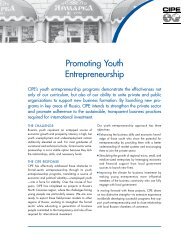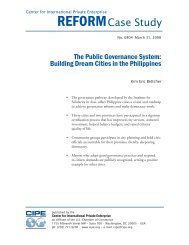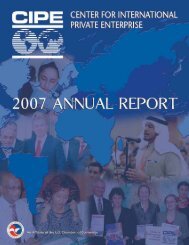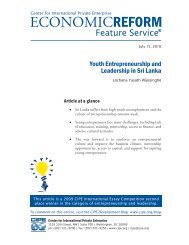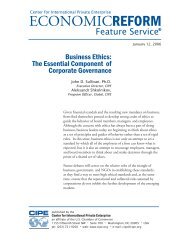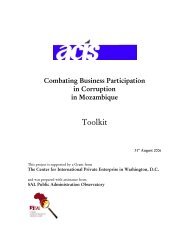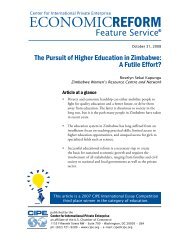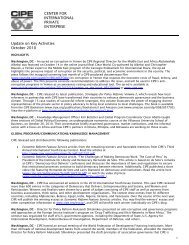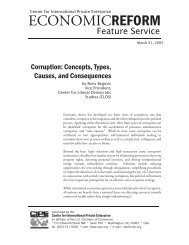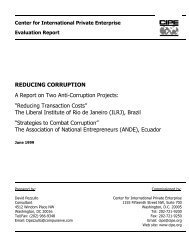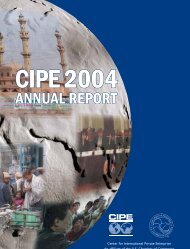Responsible Business Guide: A Toolkit for Winning Companies
Responsible Business Guide: A Toolkit for Winning Companies
Responsible Business Guide: A Toolkit for Winning Companies
You also want an ePaper? Increase the reach of your titles
YUMPU automatically turns print PDFs into web optimized ePapers that Google loves.
RBG<br />
<strong>Responsible</strong> <strong>Business</strong> <strong>Guide</strong>: A <strong>Toolkit</strong> <strong>for</strong> <strong>Winning</strong> <strong>Companies</strong><br />
The Road to <strong>Responsible</strong> <strong>Business</strong><br />
The writing is on the wall. What has become increasingly important to consumers and<br />
investors all over the world is how a company makes money, rather than how much<br />
money it makes.<br />
<strong>Business</strong> as a <strong>Responsible</strong> Citizen<br />
Over the last decade we have seen a near-total<br />
trans<strong>for</strong>mation 15 in the way business is expected<br />
to operate. In today’s global environment, profits<br />
alone do not suffice as a measure of corporate<br />
success. It is true that successful companies are<br />
still identified by their profitability, using familiar<br />
measures such as market share or return-oninvestment.<br />
But at the same time, an entirely new<br />
set of “social responsibility” parameters have<br />
gained acceptance as one gauge of a winning<br />
company rewarded <strong>for</strong> its ethical behavior.<br />
Spending on sustainable products and<br />
services over the past decade has increased<br />
tenfold, with each UK household now<br />
spending on average £251 per annum on<br />
green items.<br />
Ethical Consumerism Report 2009,<br />
Co-operative Bank and Ethical Consumer Research<br />
Association (ECRA)<br />
Globally responsible leadership is not only<br />
beneficial to the world’s largest corporations.<br />
Entrepreneurs from the developing world<br />
should realise its benefits. They should<br />
develop mechanisms <strong>for</strong> demonstrating social<br />
and environmental expenditures as<br />
investments which, in the long run improve<br />
their financial bottom line and add value to<br />
economic and societal development.<br />
Ambreen Waheed<br />
EFMD-UNGC Globally <strong>Responsible</strong> Leadership –<br />
A Call <strong>for</strong> Engagement<br />
Enterprises’ overseas clients are familiar with<br />
demands <strong>for</strong> compliance or social audits. The<br />
companies often say they are left wondering as<br />
to how this additional burden relates to their<br />
traditional way of doing business, which has<br />
always been based on low prices and client<br />
satisfaction. Likewise, multinational corporate<br />
giving campaigns, with their allusions to corporate<br />
citizenship and corporate social responsibility,<br />
leave local businesses to assume that individual<br />
philanthropy is somehow an appropriate measure<br />
of responsible company behavior.<br />
As if all this were not enough, business owners face an onslaught of CSR consultants who<br />
promote CSR strategies that range from corporate community investment (CCI) at best to<br />
re-hashed PR solutions or marketing gimmicks couched in CSR language at worst.<br />
<strong>Responsible</strong> <strong>Business</strong> Initiative 17



